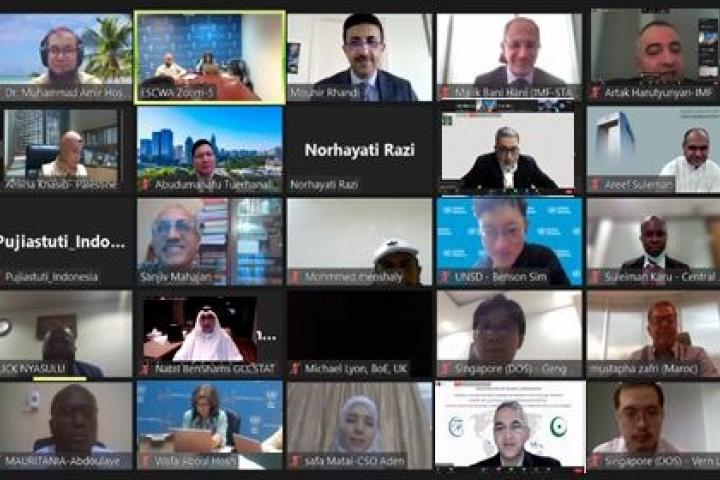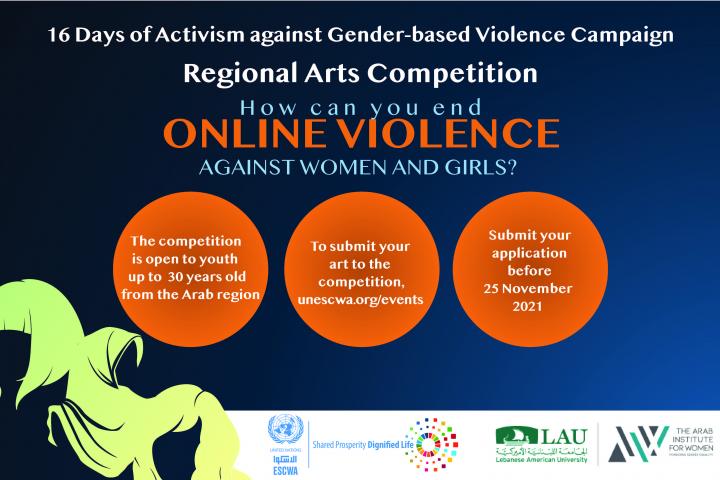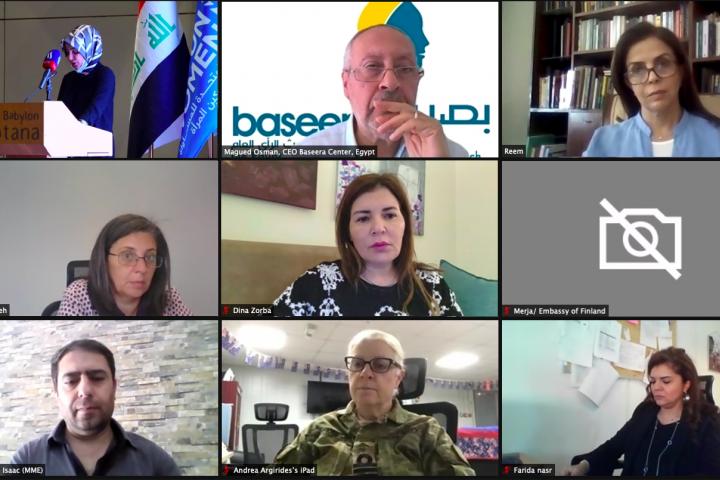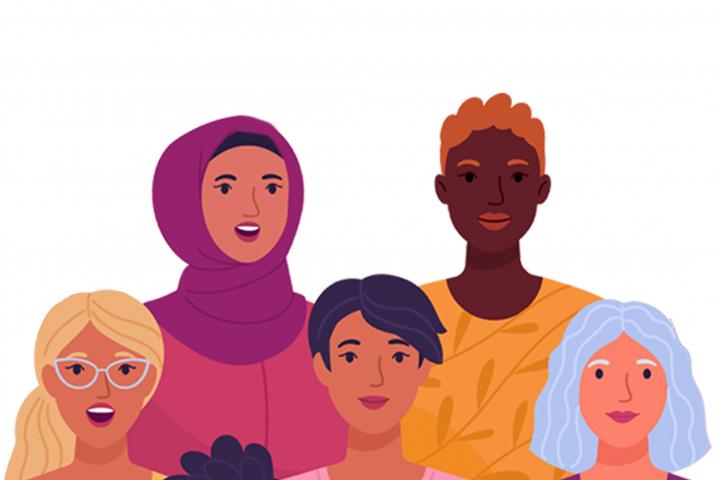Last July, ESCWA kicked off the first phase with a training of trainers in Bebnine, Akkar, North of Lebanon, where over 35 young women received a five-day training on their rights and entitlements as refugees and as contributors to Syria’s peace building process.
According to Bassima Makiyeh, one of the participants, everything mentioned in the training is happening: violence, beatings and killings are all present in life, in addition to the fact that women’s rights are being violated.
“I look at how I can spread awareness among my children by telling them about all these things. When I spread awareness in my family, my children can then spread it further. They tell their friends and their teachers because no matter how much one learns at school, the conferences we attend are far more efficient,” she said.
For her part, Halima Idris said that she will avail a lot from this project and will transfer the knowledge to the ladies she meets with on a weekly basis. “I decided to engage in this subject so that I learn more and teach others. It was quite beneficial and I have learned about various topics I had no knowledge of and learned about new topics and new laws,” she emphasized.
Meanwhile, Zainab Ghazal highlighted that she is now a completely different person after all the things she got exposed to.
The team of ESCWA focused in their interventions on women participation in the decision-making process by shedding light on international and national frameworks related to women. They also sought to enhance the participants’ skills to organize community awareness sessions on women's rights and the role of women in post-conflict peace building.

“It has given me more strength and will than I had expected. Right now, I am very optimistic,” said Warde Abdullah Al Mash-hadani. “I am raising orphans and would like to be a role model for my children, seeing that everything is by the law and respectful of my rights,” she added.
Another trainee, Rania El Hourani, was not aware that she has the right to defend herself, raise her voice, ask, or educate her daughter and that she too has the right to ask, say no. “I probably got married too young but I refuse my daughter to suffer the same fate, I refuse to have her not be able to choose her life partner,” she stressed.
Meanwhile, Rweida El Mida pointed out to the importance of such trainings, particularly in societies that lack the awareness and education needed to face major challenges. “I believe that once we have access to education and job opportunities, our situation will be improved,” she said.
The training also focused on empowering trainees to monitor the needs and priorities of women in the community. Identified priorities and needs will be integrated into three policy papers that will later be used in the advocacy process with the various stakeholders involved.
***
For more information:
-Ms Rania Harb, Public Information Assistant, +961-70-008-879; email: harb1@un.org
-Ms Maryam Sleiman, Public Information Assistant, +9611978815, email: sleiman2@un.org




